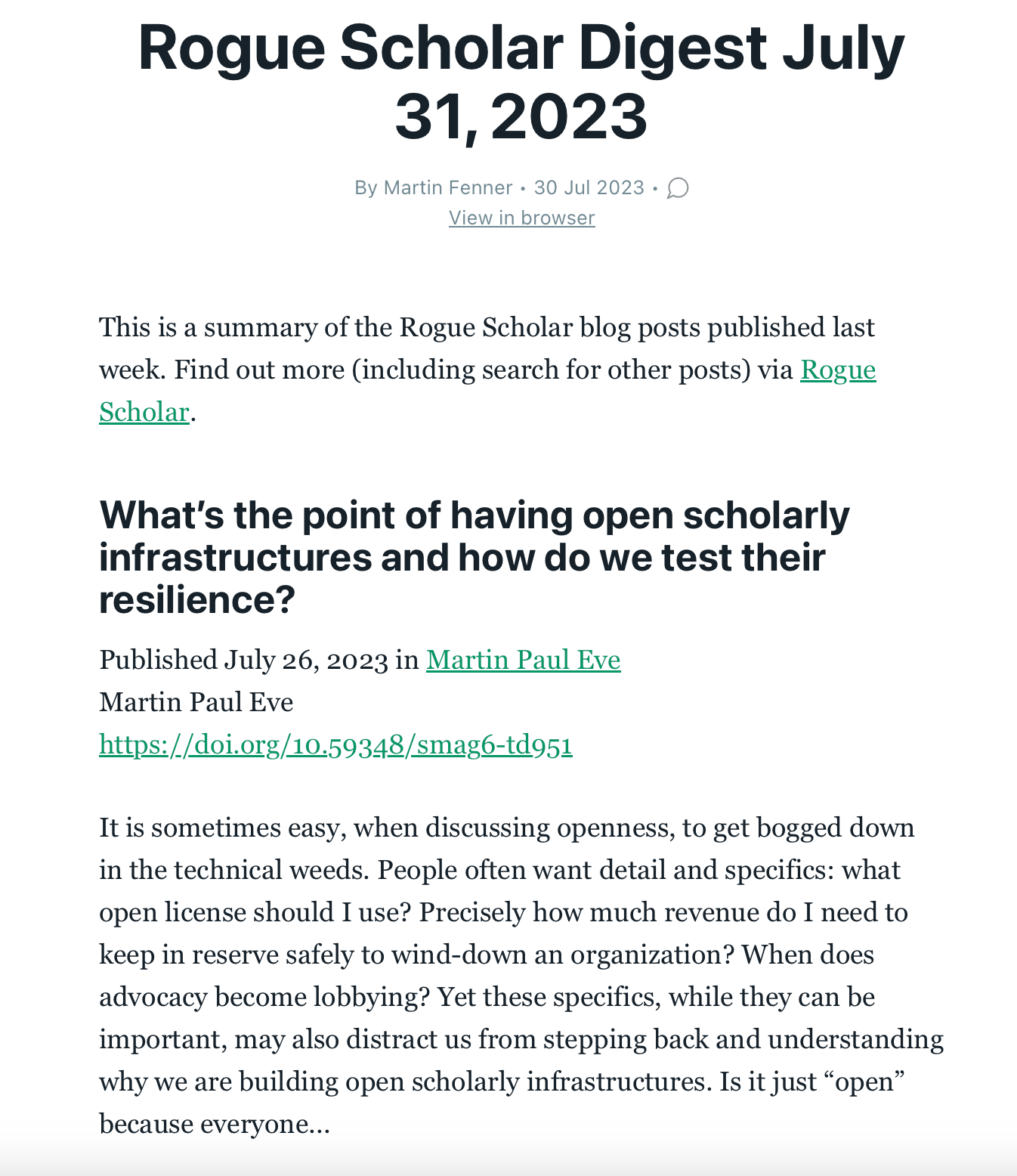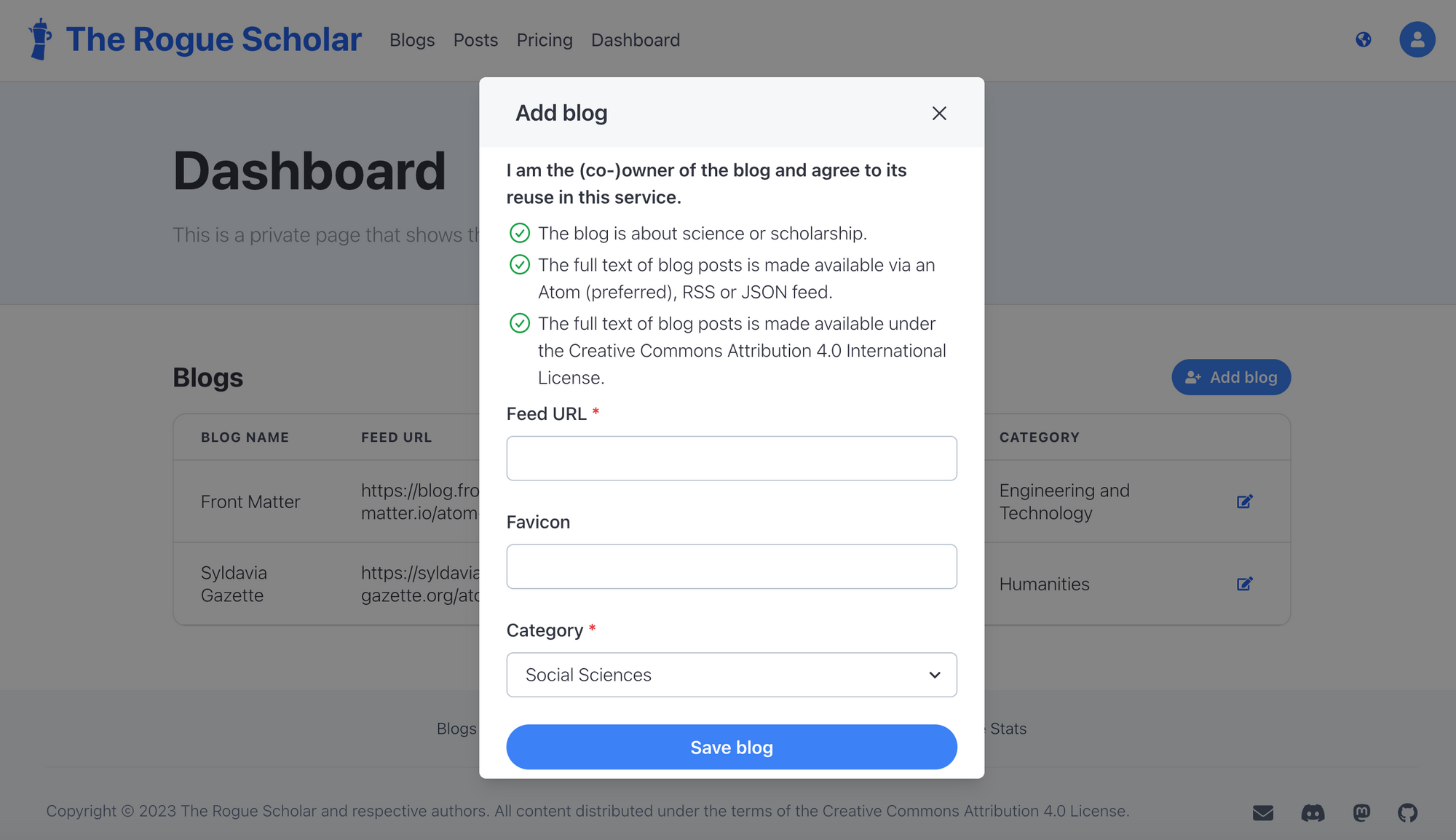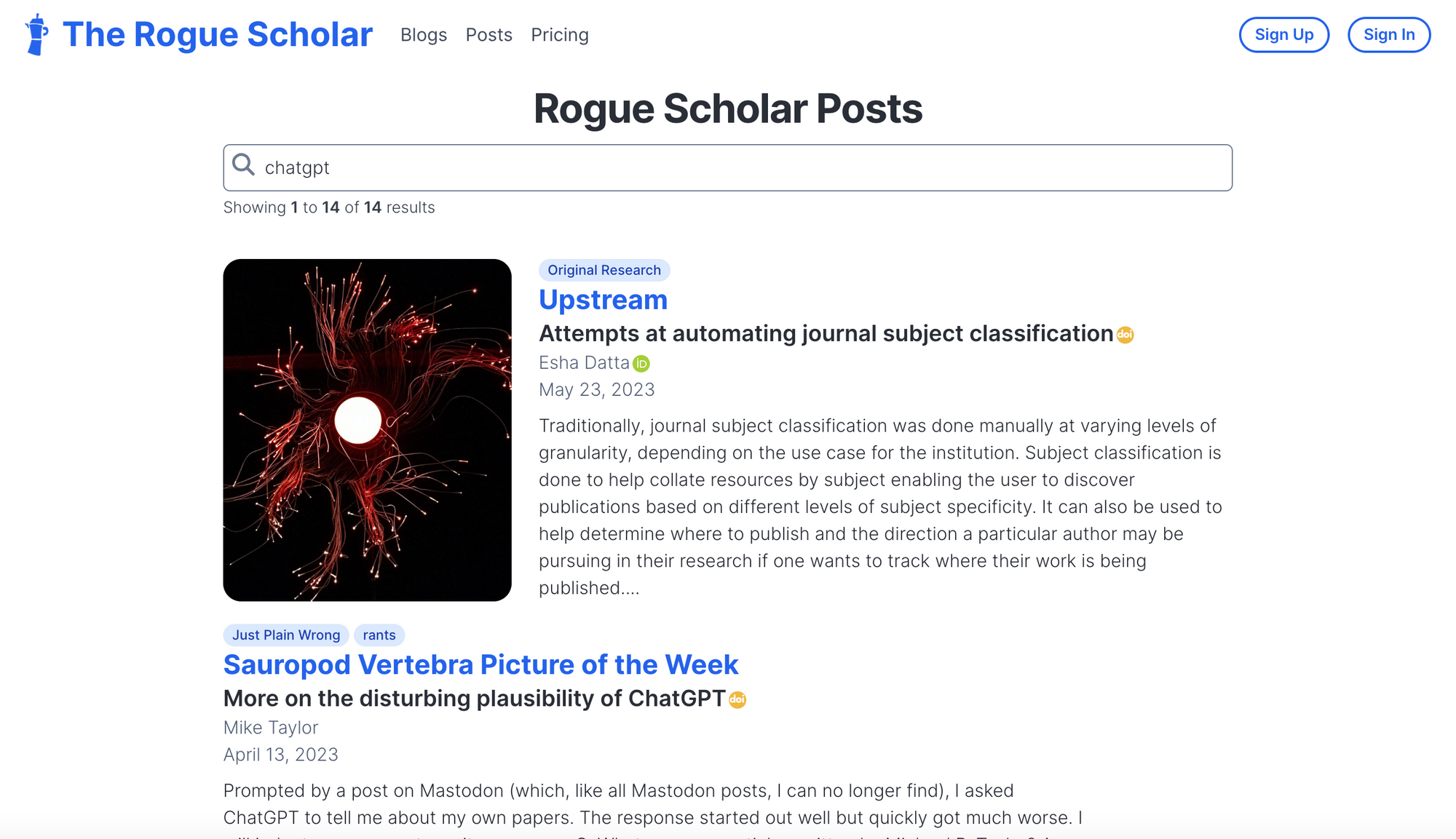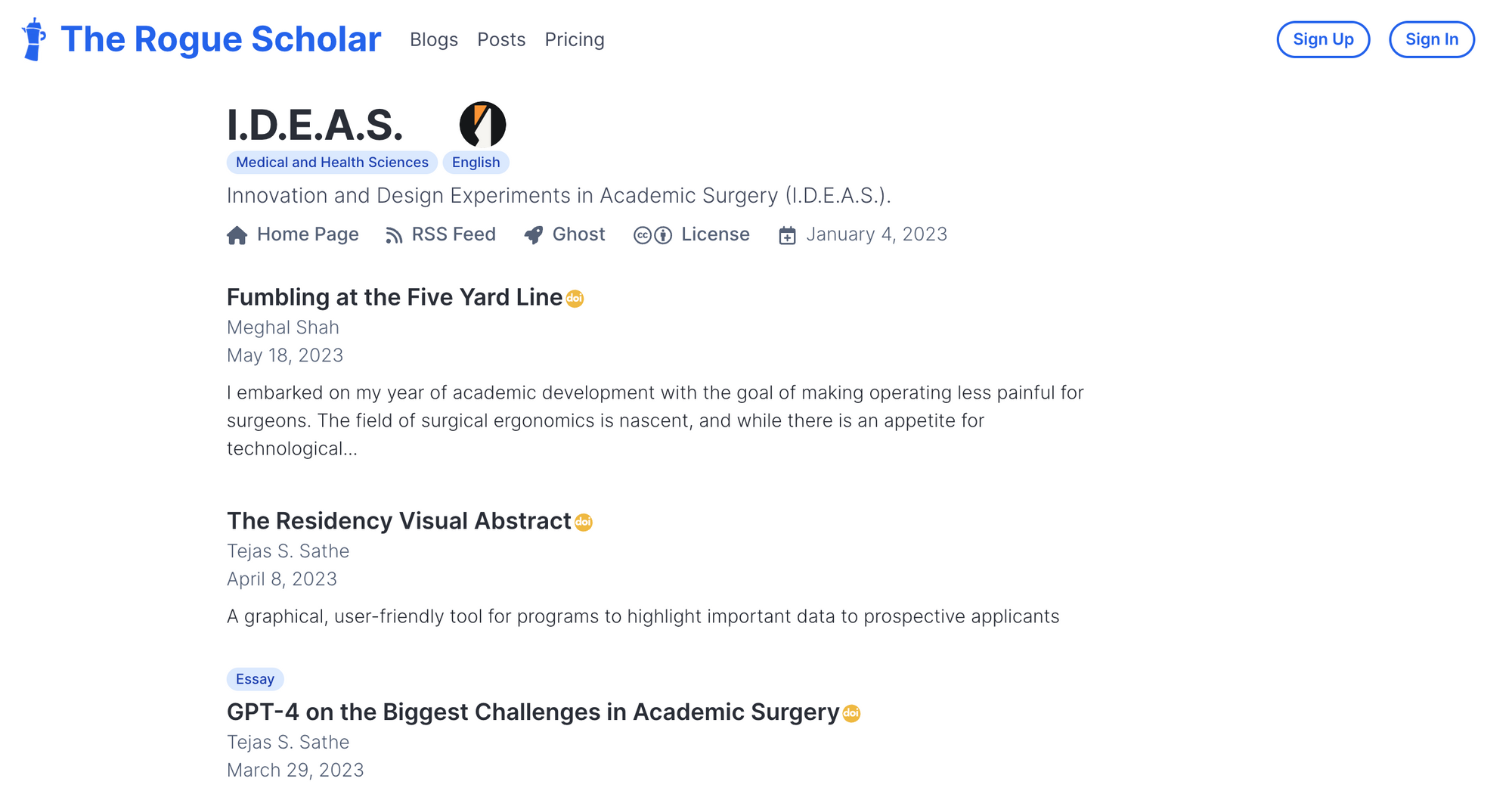
The Rogue Scholar science blog archive adds important functionality to existing science blogs, namely archiving, full-text search, and DOI registration. While a lot of effort has gone into making Rogue Scholar as affordable as possible by using Open Source software, automation, and involving the community, it still costs money to build and run scholarly infrastructure, including scholarly infrastructure for science blogs.









